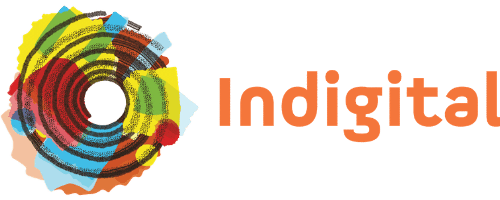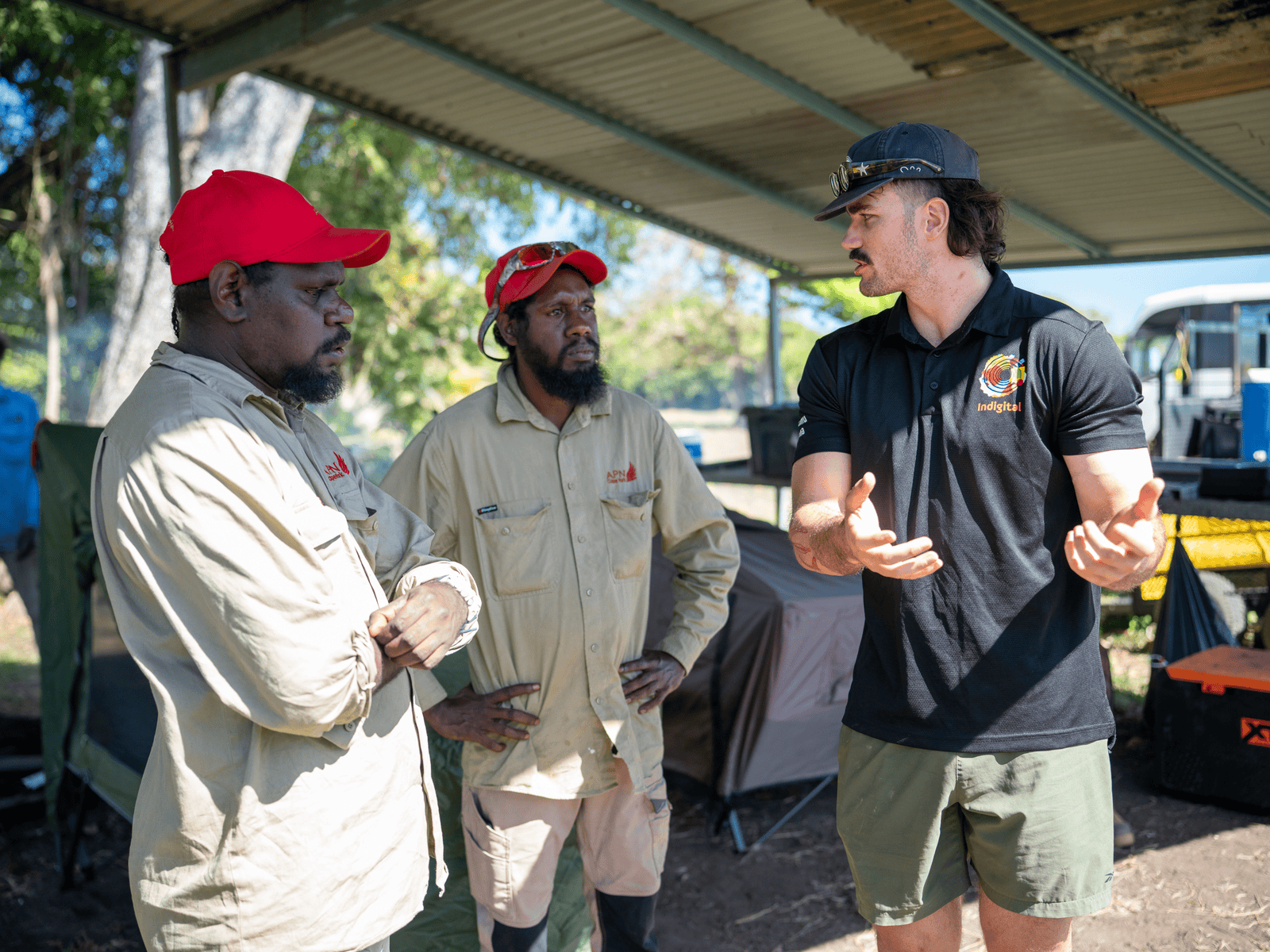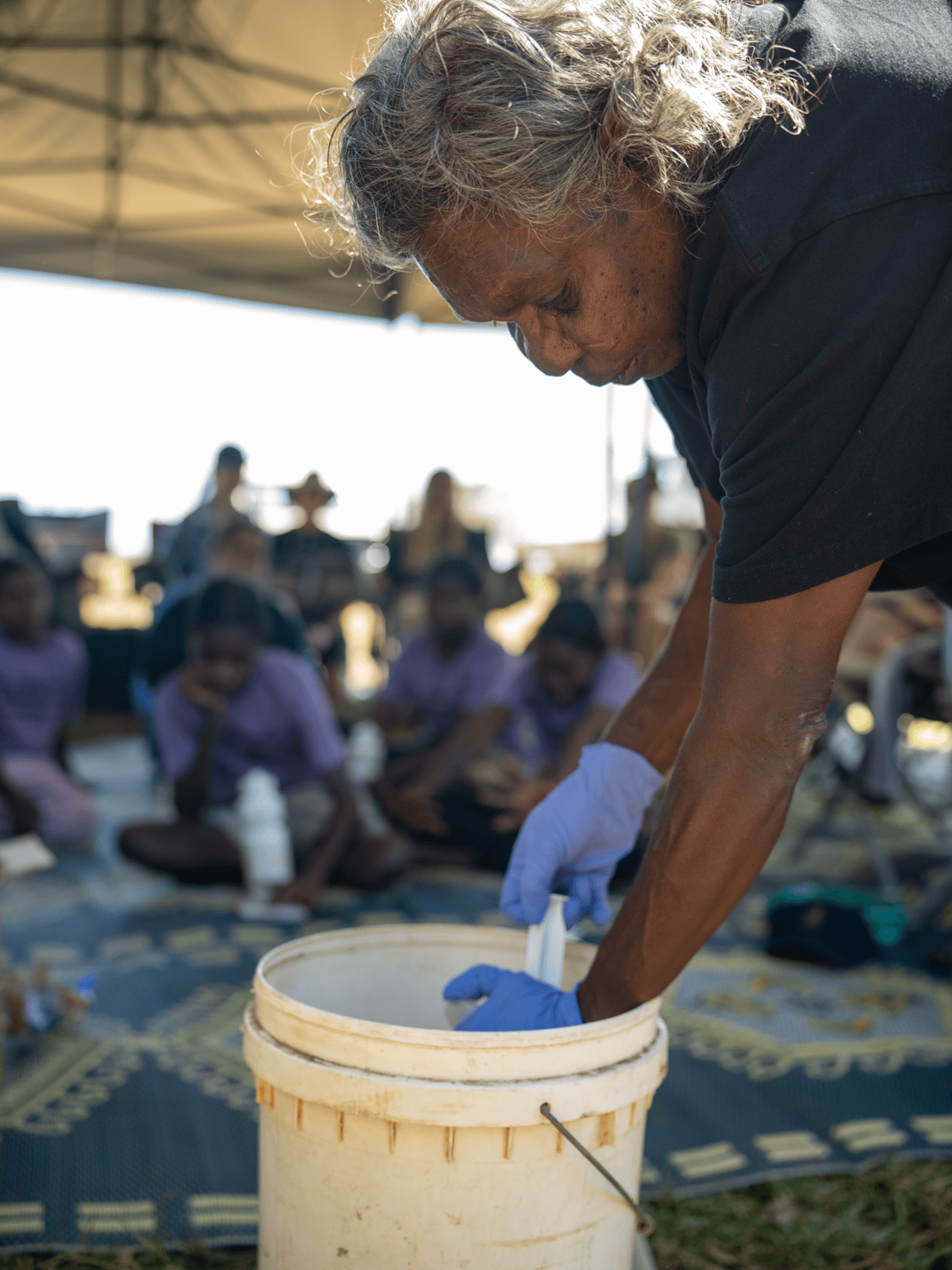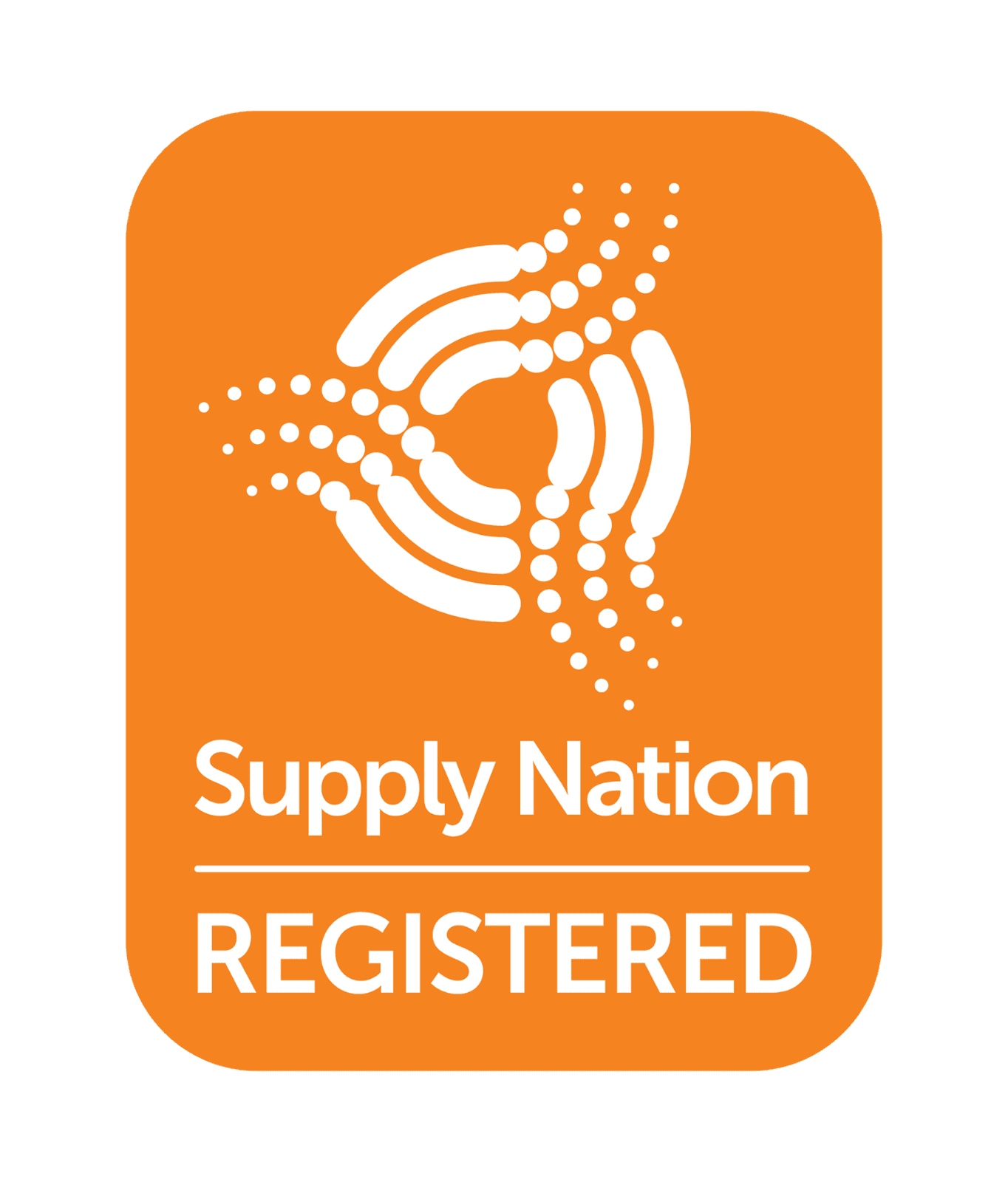Location: Aurukun, on the Traditional Lands of the Wik, Wik Waya Peoples, Western Cape York.
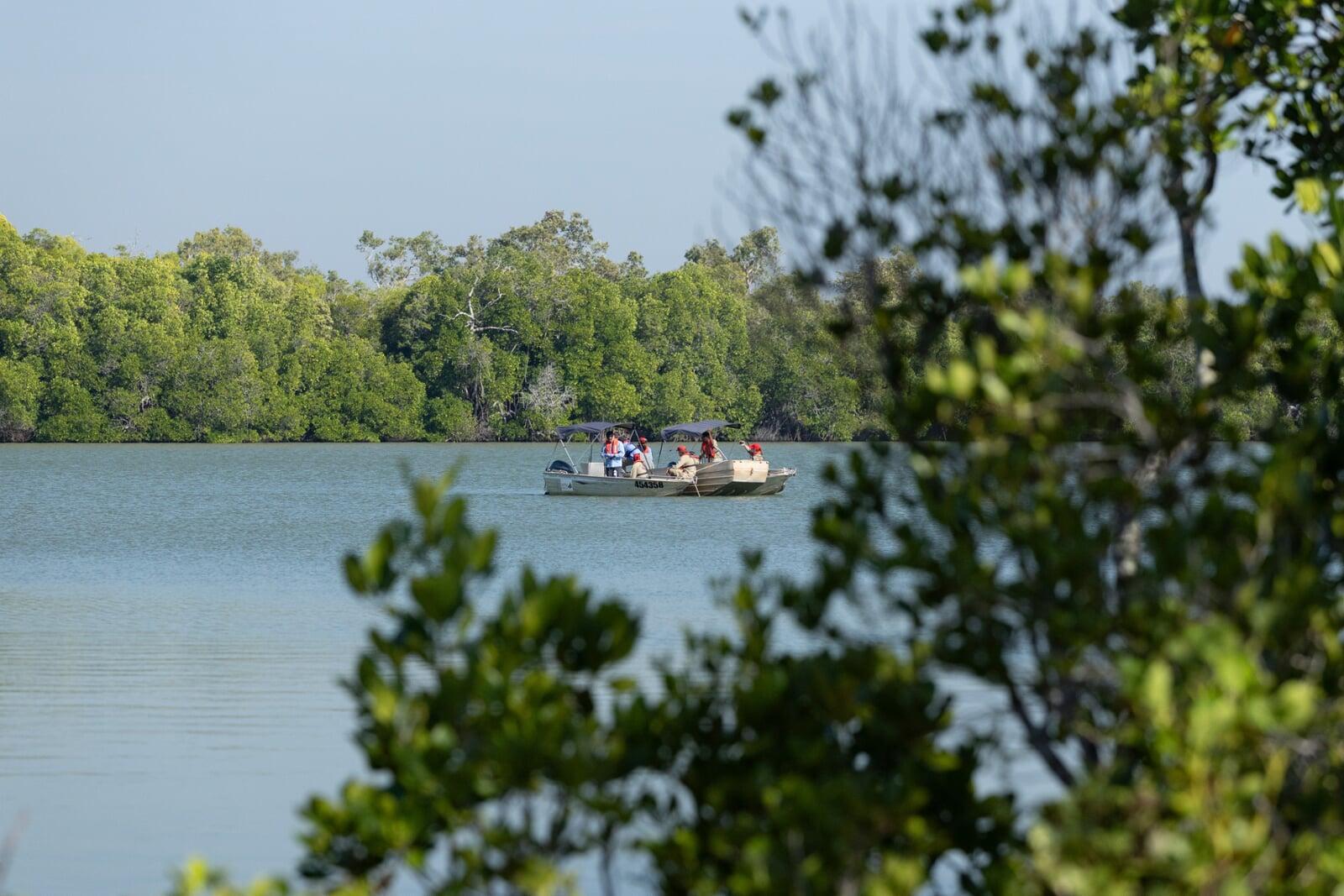
IMAGE: APN Rangers setting out to sample waterways, combining technology and cultural knowledge to care for Country.
People: Building Confidence and Technical Capability
Mornings in Aurukun have their own quiet rhythm. The river lies still, smoke from cultural burns drifts across the horizon, and the scent of Country being cared for fills the air. At the boat ramp, APN Rangers gather, checking gear and preparing to head out on the water.
Season Two of the Caring for Country: Growing Conservation Through Digital Literacy program is all about connection to water. To start on the riverbank, where stories flow and knowledge is shared, grounds this Season in the rhythm of Country itself.
This Season, we were welcomed to walk alongside the APN Rangers, part of local Traditional Owner-led organisation, APN Cape York. As local leaders, with deep knowledge of Country, their knowledge is helping to shape how the program evolves in practice and in purpose. Their participation marked an important milestone: communities guiding how emerging technologies can strengthen cultural and ecological knowledge on Country.
After a briefing on environmental DNA (eDNA) sampling, the Rangers took the lead. They identified key sites along the waterways for different species, then launched their boats and collected water samples across multiple locations. Confident and capable, they carried out the process independently, despite only being introduced to the technology the day before. Their leadership showed what it looks like when technical capability walks side by side with cultural authority.
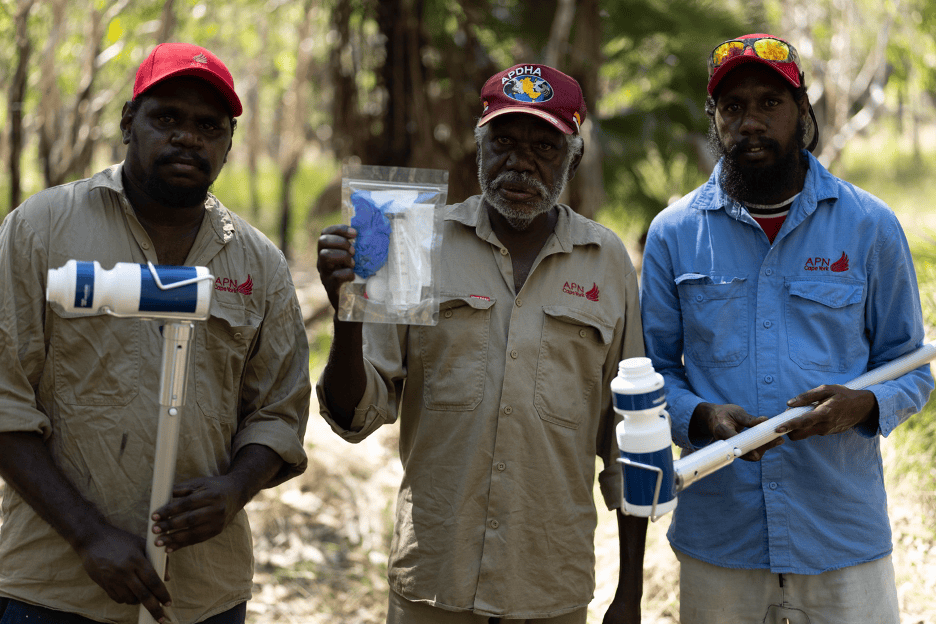
Community: Learning Together on Country
While Rangers were out on the water, Elders, families, and PCYC Aurukun staff gathered at the Paamp (End Swamp), a site chosen by Elders and Rangers for its cultural safety and accessibility. The Masterclass unfolded entirely on Country, moving at the pace of the day, surrounded by birdsong, laughter, and quiet focus.
This co-designed approach made learning about more than technology, it was about connection. Traditional Owners, Indigital, and EnviroDNA facilitators worked together on site selection, safety, and logistics, ensuring every step reflected local protocols and priorities. It became a space for genuine two-way learning, where cultural and scientific knowledge met in balance.
Among the Elders was Apalech Traditional Owner and ACRG member, Aunty Vera Koomeeta, who shared stories of the seasonal calendar, how the flowering of plants or the arrival of birds and fish mark shifts in time and place. Her words gave powerful context to the sampling work, linking today’s science with generations of observation and pattern knowledge.
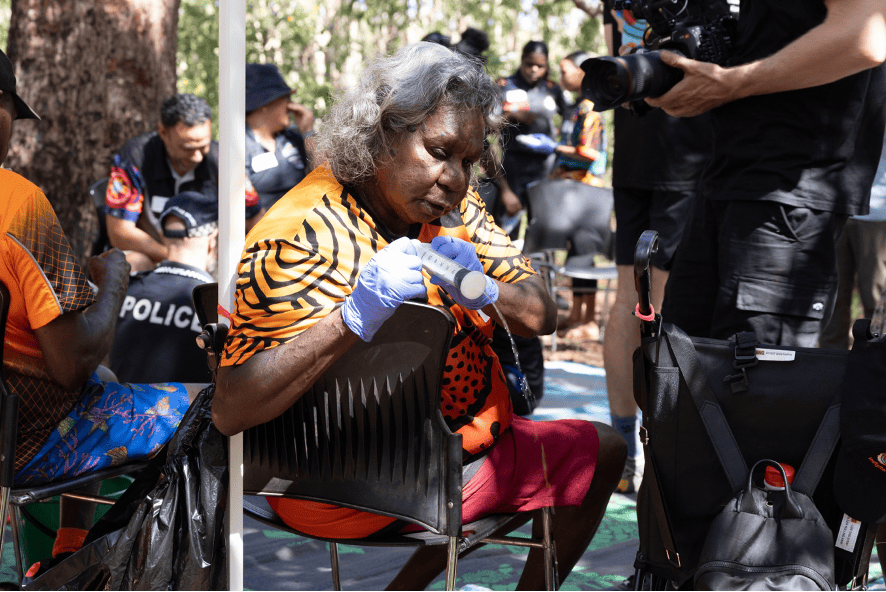
IMAGE: Aunty Vera Koomeeta joins in water sampling during the Season Two Masterclass on Country, sharing knowledge and curiosity across generations.
As Rangers spoke in Wik-Mungkan and demonstrated sampling, everyone joined in, Elders, youth, and families becoming citizen scientists together. What began as a technical activity became a cultural exchange, a moment of shared learning across generations.
When technology is led by community, it becomes more than a tool, it strengthens language, knowledge, and connection to Country, while aligning with community aspirations for Indigenous-led conservation, learning, and employment.
System: Strengthening Local Authority and Redefining Partnership
Our collaboration with APN Cape York and community marks a shift in how environmental monitoring is governed and shared. Through the Masterclass, Rangers stepped into facilitator roles, leading sampling, mentoring others, and shaping how data and technology are used to care for Country. This moves beyond participation to genuine partnership, where Traditional Owner–led organisations guide research, data use, and decision-making on Country.
Independent sampling during the Masterclass signaled a transition from delivery to community-led practice, setting a standard where Indigenous authority directs science. It also opened pathways for lasting impact, embedding eDNA in ranger workflows, informing conservation planning, and strengthening the role of cultural governance in environmental management.
From the Season Two Masterclass, the learning didn’t end, it flowed forward. At Tha’ Pemp Wuut Mangkantam (Returning Generations Camp) on Southern Wik homelands, the same tools first introduced through the Masterclass, eDNA sampling and LiDAR scanning, were now being taught by Elders and Rangers to the next generation, entirely in Wik-Mungkan.
IMAGES: Caring for Country Lead Lindsay Davies with APN Rangers Jordan Tolkolkin and Brian Pamtoonda. Aunty Vera shares her new skills in water sampling with the next generation at Returning Generations camp — Tha' Pemp Wuut Mangkantam. Photos from this event were captured by Phil Schouteten (@phischcreative).
Community-led learning had now become community-led teaching, and knowledge that began on the riverbank continues in language, on Country, and with the next generation. Community-owned data collected through this process is beginning to offer new insight into local waters, helping Rangers track change, identify species, and connect science with cultural priorities.
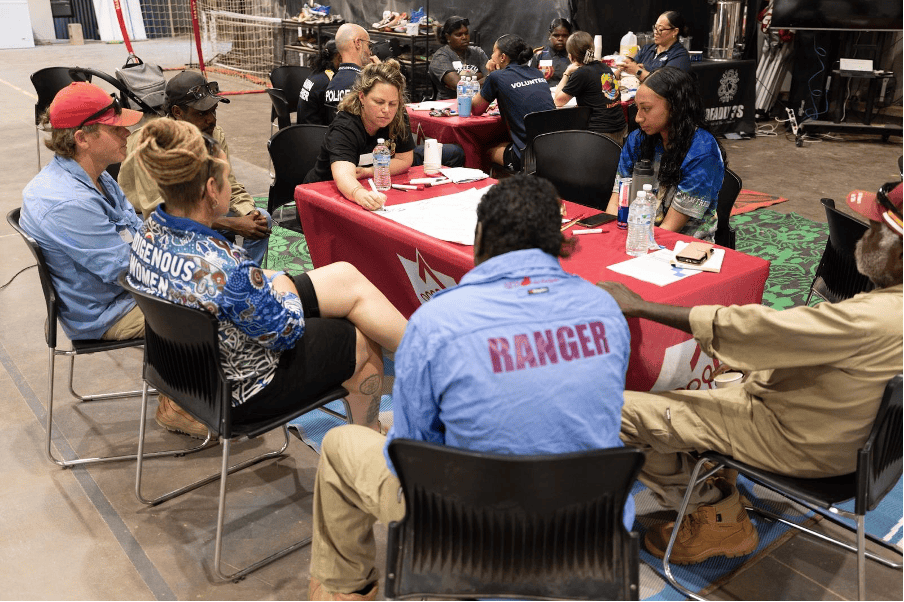
IMAGES: APN Rangers and community participate in the Season Two Co-Design session.
As part of co-design, Elders, Rangers, and community members are continuing to guide where samples are taken, how data is stored, and who has access. Embedding these discussions within cultural protocol is strengthening Indigenous Data Sovereignty and laying the groundwork for a governance model where knowledge remains locally grounded, culturally protected, and collectively owned.
